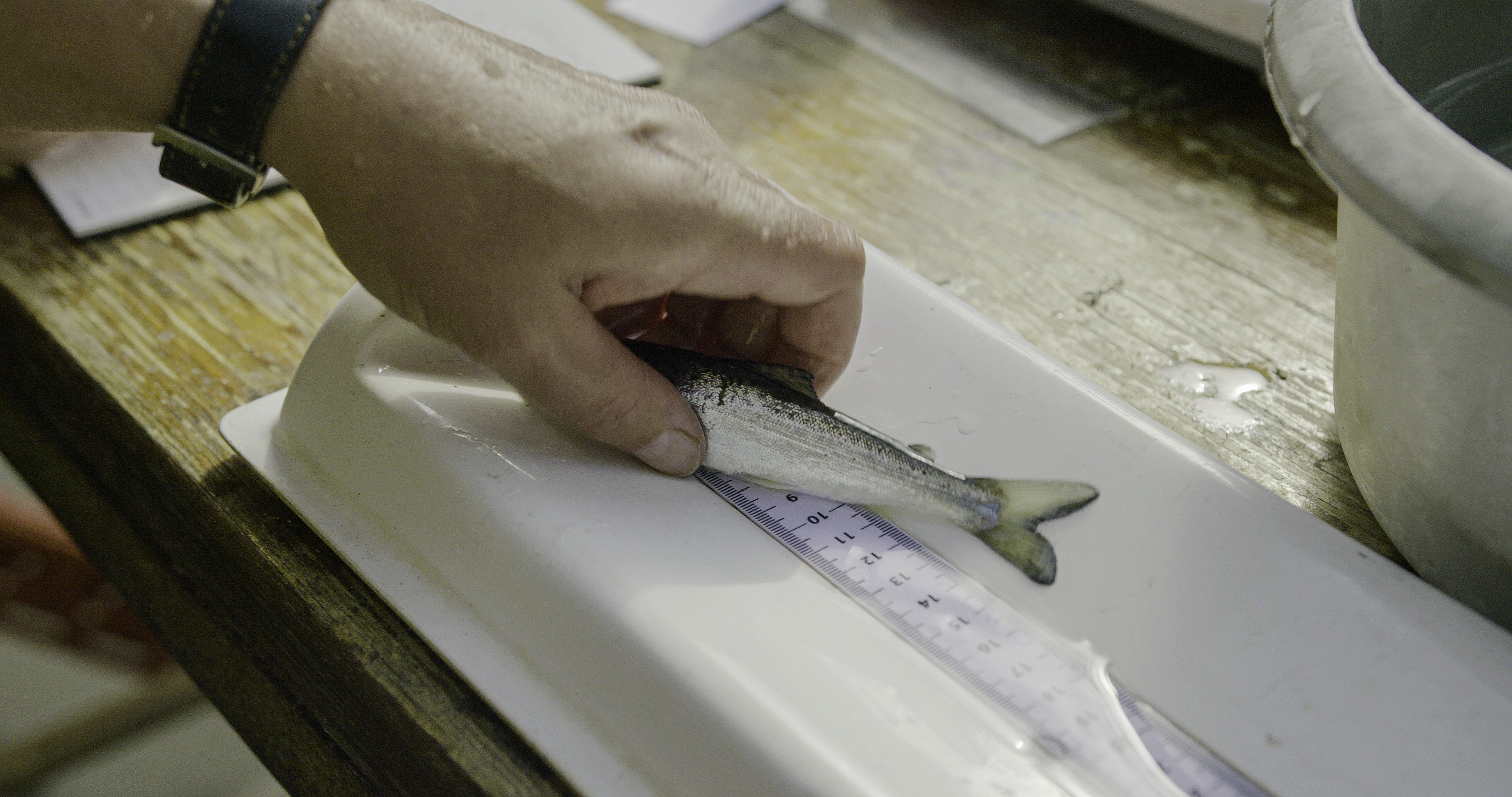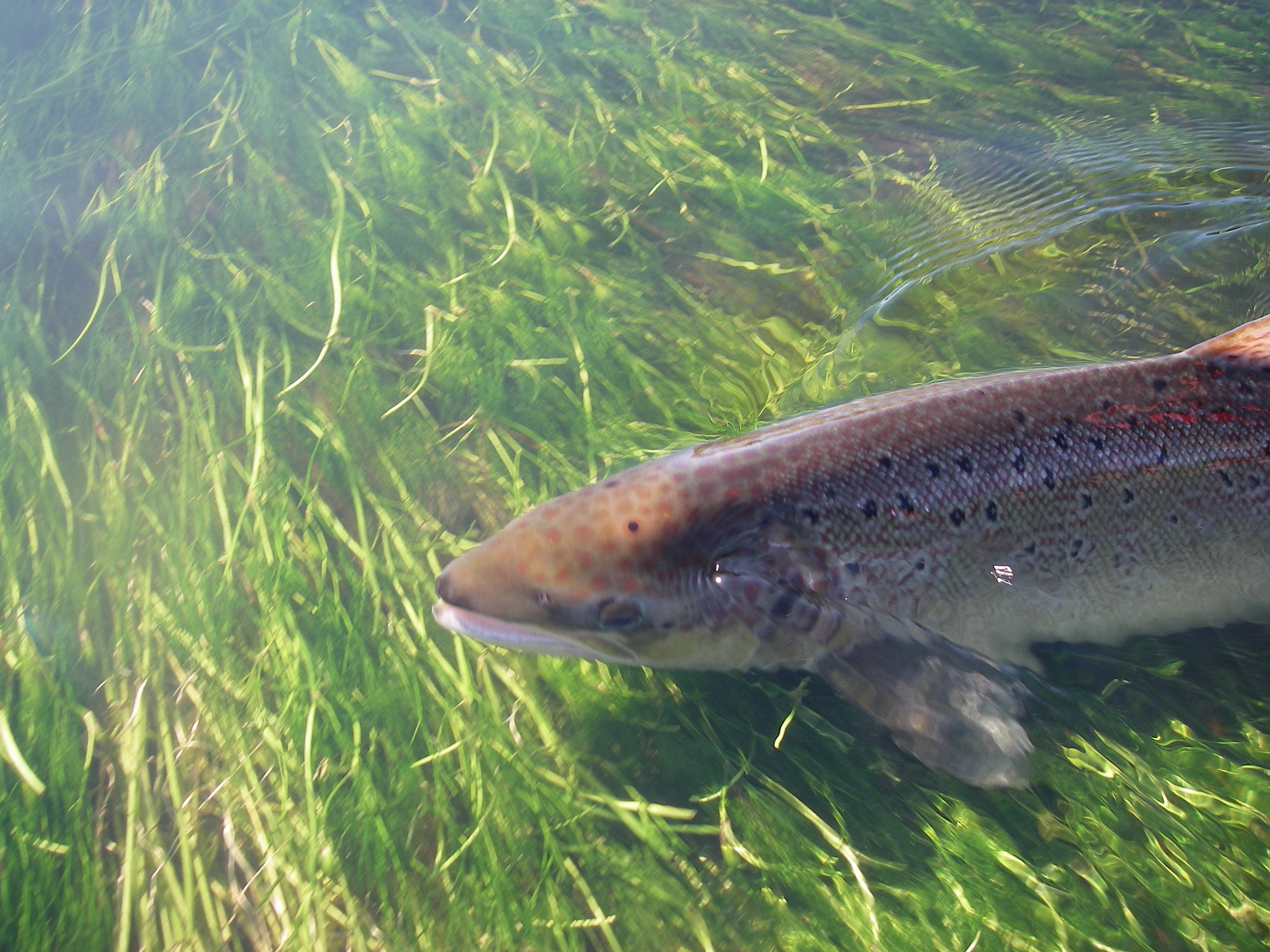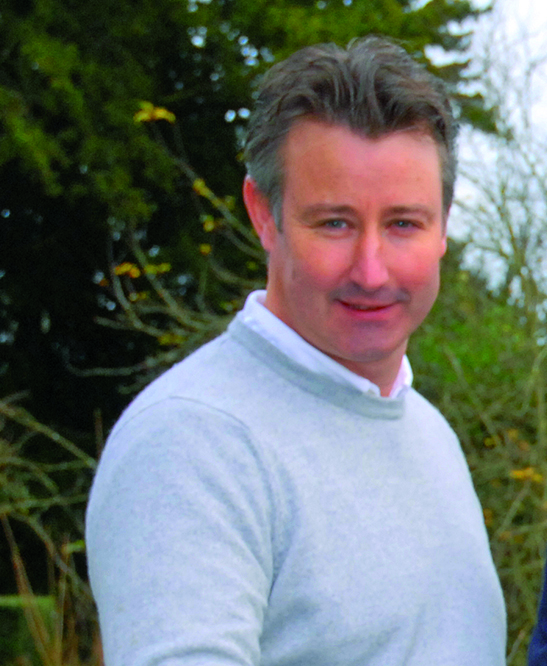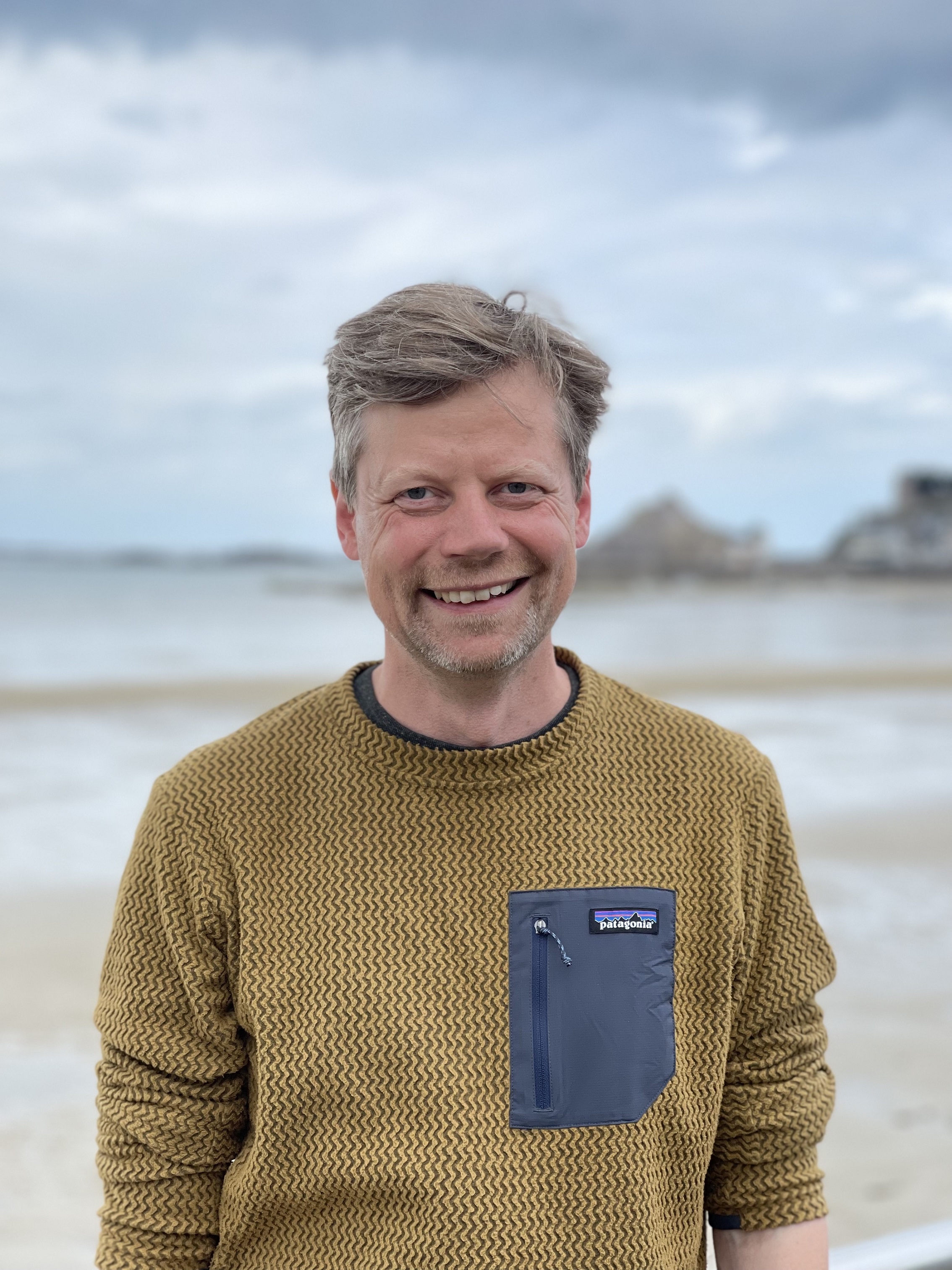Poole Harbour oil spill could have serious consequences for threatened migratory fish, say GWCT experts
"We are extremely concerned that these increasingly rare young fish, may perish in the polluted waters," Dylan Roberts, GWCT Head of Fisheries
UK wide conservation organisation the Game & Wildlife Conservation Trust (GWCT), has today highlighted it’s serious concerns over the impact of the 200-barrel fluid leak into Poole Harbour on protected migratory fish. The GWCT operates the Salmon & Trout Research Centre on the River Frome at East Stoke, Dorset which has been monitoring the salmon population in depth for 50 years.
A major incident was declared on Sunday 26 March 2023, when a leak occurred at a pipeline operated by gas company Perenco.
The leak coincides with the start of the sea-bound migration of vulnerable young Atlantic salmon (Salmo salar) and sea trout (Salmo trutta), known as smolts, from the Rivers Frome and Piddle which flow directly through Poole Harbour. The young salmon and trout hatch from eggs laid by adults in the river, where they spend between 1 – 3 years before migrating to sea from March to mid-May. Here they will feed and grow for a further 1 – 3 years before returning to the river of their birth to reproduce.
Every Spring GWCT scientists trap smolts to quantify how many are leaving the river and to scan them for a PIT-tag (a microchip which enables them to identify individuals) and record biometric information, before releasing them.
“This is the worst possible time for migratory salmonids. We are currently catching them in numbers through our smolt trap so we know that they are passing through Poole harbour at the moment,” said GWCT Head of Fisheries Research, Dr Rasmus Lauridsen.
Dylan Roberts Head of Fisheries at GWCT, which is a member of the Missing Salmon Alliance, said “During their migration through estuaries, they are at a crucial and highly sensitive stage of their life cycle as their bodies adjust to transferring from living in rivers to sea water. We are extremely concerned that these increasingly rare young fish, may perish in the polluted waters.”
When exposed to oil, adult fish may experience reduced growth, enlarged livers, changes in heart and respiration rates, fin erosion, and reproduction impairment. Fish eggs and larvae can be especially sensitive to lethal and sublethal impacts. Even when lethal impacts are not observed, oil can make fish and shellfish unsafe for humans to eat.[1]
The River Frome is recognised for its environmental importance. It is a designated Site of Special Scientific Interest (SSSI) for its ecology and geomorphology including salmon and sea trout, and a Special Protection Area (SPA) for Birds. Poole Harbour designated as a Site of Special Scientific Interest, a Special Protected Area and a Ramsar site.
Some areas of the British Isles have seen over a 70% decline in wild Atlantic salmon in the past 25 years. Most wild salmon populations in England’s rivers are below sustainable levels and classified as ‘At Risk’ by the Environment Agency which is tasked with their protection.
Atlantic salmon are listed as vulnerable on the European IUCN Red List of Threatened Species. It is also a species of international concern and is listed under the Bern convention, and listed to be protected under the Water Framework Directive. The Rivers Frome and Piddle, which flow into Poole Harbour, are home to other migratory species which migrate from rivers to the marine environment for part of their life cycle. These include the European Eel (Anguilla Anguilla) which is listed as critically endangered on the IUCN Red List, and the Sea lamprey (Petromyzon marinus), which are migrating through Poole Harbour at this time of year.
The River Frome is one of twelve Index Rivers for Atlantic salmon around the North Atlantic which are used to report the condition of wild salmon populations by the International Council for the Exploration of the Seas (ICES), and are used to set international exploitation rates for salmon fisheries across the Atlantic.
Ends
PR Contacts:
Kate Williams, GWCT kwilliams@gwct.org.uk 07592 025476
Dylan Roberts, GWCT droberts@gwct.org.uk 07968 586538
Claire Zambuni, Missing Salmon Alliance claire@zambuni.com 07921299990
Iona Mackay, Missing Salmon Alliance iona@zambuni.com 07504661424
Notes to Editors:
The Game & Wildlife Conservation Trust – providing research-led conservation for a thriving countryside. The GWCT is an independent wildlife conservation charity which has carried out scientific research into Britain’s game and wildlife since the 1930s. We employ 22 post-doctoral scientists and 50 other research staff with expertise in areas such as birds, insects, mammals, farming, fish and statistics. GWCT Hosts a dedicated Salmon and Trout Research Centre at East Stoke, on the lower River Frome in Dorset.
Missing Salmon Alliance: Founded in 2019, a group of Britain’s leading conservation-focused organisations formed the Missing Salmon Alliance. Their combined expertise has continued to drive action to save our wild Atlantic salmon from the brink of extinction. The member organisations are the Atlantic Salmon Trust, the Game & Wildlife Conservation Trust, the Angling Trust with Fish Legal, Fisheries Management Scotland, and the Rivers Trust.
[1] https://oceanservice.noaa.gov/facts/oilimpacts.html
Press release distributed by Pressat on behalf of Game & Wildlife Conservation Trust, on Thursday 30 March, 2023. For more information subscribe and follow https://pressat.co.uk/
Salmon Trout Conservation Oil Pollution Poole Harbour Endangered Leak Environment Sea Rivers Charities & non-profits Environment & Nature Farming & Animals Government Leisure & Hobbies Men's Interest Opinion Article
You just read:
Poole Harbour oil spill could have serious consequences for threatened migratory fish, say GWCT experts
News from this source:





